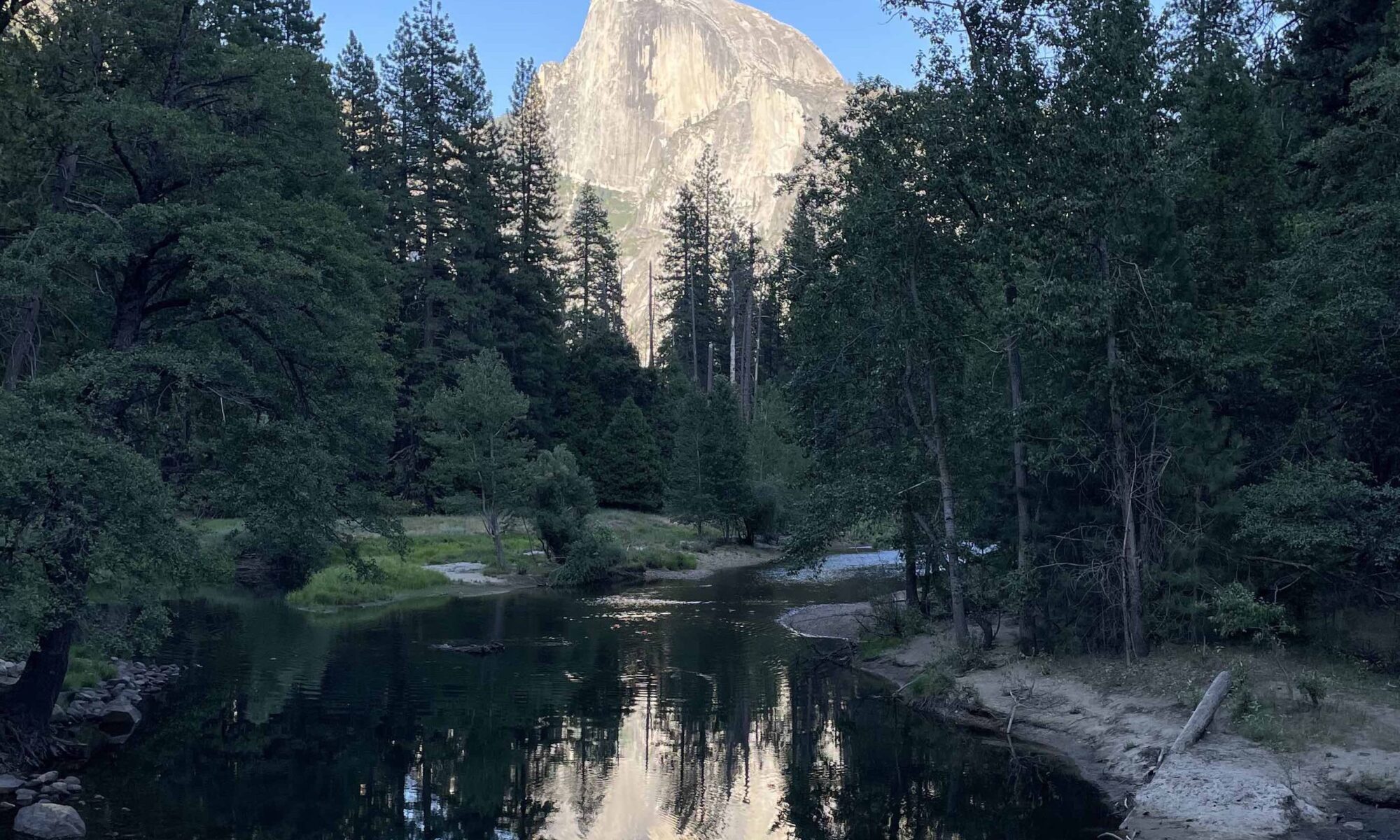Half Dome is as sublime as ever. But it presides over a valley where California’s drought is obvious. When I visited Yosemite this past week, the Merced River was barely flowing. Vernal Falls was a trickle. And Yosemite Falls was a dry dribble. We’re running out of water, folks.
If you drive to Shaver Lake, you see another warning about our hot, dry future. Last year’s fire left a scorched and desolate landscape. A few green shoots are returning. Forests are resilient. But their resilience is measured in decades. The forest will not return in my lifetime.
Our grandchildren will inherit a world of drought, fire, and heat. The climate is changing. The American West is drying up, including the mighty Colorado. As the land dries out, the fires will be worse.
Last week in this column, I talked about the “tragedy of the commons.” When we fail to cooperate, we end up with bad outcomes. This happens with regard to vaccines and masks. The drought provides another worrying example.
The California Water Resources Control Board met recently to consider cutbacks on water allocations. If the state imposes restrictions, they will be unpopular. Farmers will protest, as will back-yard gardeners.
The pandemic has shown that scarcity breeds polarization and conflict. In lean times, people get grumpy.
The good news is that we can learn to do better. It is easy to single out the anti-mask, anti-vax crowd. But the majority of people educated themselves and did the right thing.
Environmental issues will require similar cooperative evolution. Those of us who grew up in a cooler, wetter world will resent the restrictions of the hot future. But our grandchildren will be better at this than we are. They will have no other choice.
Spiritual and ethical evolution will be needed in a world where lots of people are competing for scarce water. If we don’t learn to cooperate, things will get worse.
A recent change in Yosemite provides a bit of hope. These days you need a reservation to visit the park. The reservation system is a response to pandemic social-distancing. They say it is only temporary. But it has solved Yosemite’s long-standing overcrowding problem.
When I visited Yosemite in May, before the reservation system started, it was impossible to park. The trails were packed. The traffic barely moved. Yosemite’s epic traffic is another example of the tragedy of the commons. When there are no limits on cars, there is gridlock, and everyone suffers.
When I visited recently after making a reservation, it was much better. The traffic was light. Parking was easy. The trails were uncrowded.
Of course, the reservation requirement is a pain. You can’t take a spontaneous trip to Yosemite anymore. In the old days, you could hike up Half Dome whenever you wanted. Now you need a reservation just to drive into the park.
It’s not hard to imagine a future where a visit to Yosemite always requires a reservation. Grumpy old timers will grouse and complain. For those of us who grew up with free and easy access, this stinks. But we will adapt, if we understand that these restrictions and limitations are in everyone’s interest.
There are reasons to hope. Human beings can learn and improve. This is a slow process. And meaningful change often only comes at the last minute. But we can evolve and respond with intelligence and compassion.
Scarcity can fuel the growth of elitism and inequality. This is why compassion and justice are needed. The reservation system makes it harder for working-class people to enjoy Yosemite. A similar problem holds for water and other resources. Rich people can buy their way out of scarcity, while poor people suffer.
Again, the pandemic provides an example. Wealthy professionals profited from low interest rates, a real estate boom, and jobs that allow telecommuting. It was poor and working-class people who suffered the worst impacts of the pandemic.
Let’s learn from that. As we respond to a hot, dry future, we must avoid exacerbating inequality. Rich people should not be allowed to cut the line or consume more than the rest of us. Water is a common good. And everyone should have access to majestic places like Yosemite.



